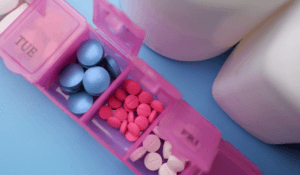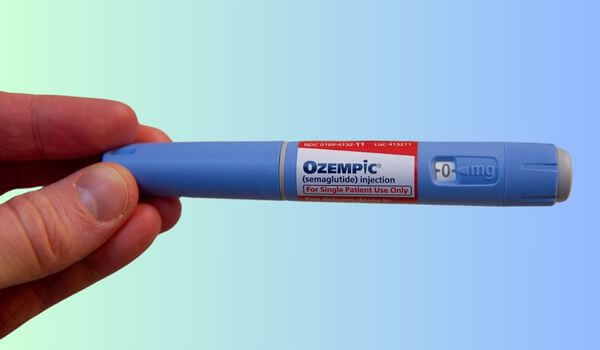
So, in this blog, I have assembled a summary of “best practices” for preventing medication mishaps at home. Hopefully, this will help readers to avoid medication mishaps and keep them safe.
Remember that we are here to help! If you have a question, our Live Chatbot is here to help! If the bot can’t solve it, we’ll connect you with a real person from our support team. They’ll get your answers as soon as possible!
#1. Before the first use of medicine
Familiarize yourself with how the medicine is intended to be used. Read the printed label that gives the specific information on how the prescribing doctor wants you to use the medication. The exact dosage, frequency, and length of use should be on the label. If you don’t understand something, ask the dispensing pharmacist for help.
Understand the medication: By law, prescribed drugs must be packaged along with a printed information leaflet that explains the basics of what the drug in composed of, how it can be used, what possible side effects and interactions there can be, and much more. Take a few minutes to read the leaflet and if there are any questions, get help before starting to take the meds. Remember, though, that what’s on the leaflet is general information – it does not override the specific instructions that the prescribing doctor ordered for your special needs. Don’t throw the leaflet out – keep it handy as long as you are using or keeping the drugs.
Parents of youngsters and other caregivers have a special duty to familiarize themselves and understand the details of the meds. Again, if there are any uncertainties, ask the pharmacist for help.
#2 Get the dosage right
Always follow the doctor’s and pharmacist’s timing, quantity, and frequency instructions.
Try to stick to a routine so that taking the medicine becomes automated. In this way, it’s less likely that doses will be skipped.
Pro Tip: Prepare a written timetable and pin it in a visible place to document all prescription drugs, over-the-counter medications, vitamins, and supplements that are to be taken. Medication mishaps happen more often due to simple oversight than deliberate action.
Try to incorporate the medication routine into the daily patterns of activities. This helps to establish a seamless schedule that you can stick to without too much thought. For instance, keep any medication that needs to be taken on an empty stomach next to the bed and take it first thing in the morning.
It is helpful when the medications must be taken for extended periods to prepare weekly or monthly doses in advance. Pill organizers are good for this. Loading the organizer at the start of the week gives benefits above not simply having the doses easily on hand. They can also serve as a warning in case a dose was missed and is still in its slot, or that it’s time to re-order when the week’s slots can’t be filled. But please see the notes below about the care and safety of medicines – pill boxes are simple devices and can be misused.
#3 Make sure usage is correct
Follow the guidelines for how the medications should be taken—for example, with or without food, before or after meals, etc.
Unless this has been specifically agreed to by the pharmacist, don’t chew, crush, split pills, or open capsules. Many pills are coated in a special way to pass through the highly acidic stomach and then work in the small intestine. Others are coated to make swallowing easier or to block off an unpleasant taste. Capsules are made to delay the release of the contents, and taking these contents directly can lead to over- or underdosing.
Some drugs have strong interactions with others, and there needs to be a gap between taking them. If a new drug is being introduced into your regime, ask the doctor or pharmacist if there are any specific recommendations for how your whole range of meds should be scheduled.
There may need to be adjustments to your diet because of interference from normal foods or liquids (a good example is grapefruit and grapefruit juice, which interfere with a wide range of medications, from statins for cholesterol to many drugs for heart conditions.)
Get advice from the doctor or pharmacist about any possible interactions with non-prescribed (over-the-counter) medicines, alcohol, or cannabis if you use them regularly. One example is any OTC dietary supplement containing St John’s Wort (Hypericum perforatum), available without prescription from pharmacies, health food shops, and supermarkets. Doctors are now advising patients who take many common medications such as Neoral, Warfarin, anticonvulsants such as Dilantin, Tegretol, Carbatrol, selective serotonin reuptake inhibitors such as Citalopram, Escitalopram, Prozac, Cymbalta, Luvox, Paxil and Zoloft, and some oral contraceptives, to avoid taking any supplement containing this uncontrolled substance because it interferes with the drug’s effectiveness.
Some medicines are not taken according to a schedule, but only when needed. Examples are painkillers for migraines, such as Imitrex, and Zomig, and emergency inhalers like Ventolin for asthma attacks. It is important to keep such drugs handy, in the same place at all times, so that they can be accessed quickly.
New services and devices can help remind you to take medicine on schedule. Phone apps like Pill Reminder for Android and Sprout Care for Apple can manage all medication schedules, serve as reminders that pop up messages when pills are due and store medical records and healthcare information. People who can’t manage such advanced devices can subscribe to commercial reminder services that will buzz them on time when a dose is due.
#4 Proper storage is key to preventing medication mishaps
Try to store all medications in one place. Apart from the prepared doses that are kept on hand, other meds should be stored where they are out of harm’s way; preferably, choose a lockable drawer or container that can’t be easily opened or removed. Always keep in mind that other people could access the store and do themselves harm if they misuse the drugs.
They should be stored in a cool and dark environment since heat and light can shorten the shelf life of the chemicals in the drugs.
The expiry date of any drug that has been in storage for more than two months should be checked. Don’t use drugs that are older than that date.
Check the usability of creams and liquids that have already been opened. Many medicines in these formats have a specified period of usability once unsealed.
Several medicines have to be kept refrigerated. Keep them away from foods, preferably in a separate drawer, or else put them in a separate container in the frig. Examples are injectables like Ozempic, Mounjaro, Compounded Semaglutide, Compounded Tirzepatide, and Tri-Mix. Don’t take them out of the refrigerator for more than 5–10 minutes before administering the dose, and replace them immediately afterward.
#5 Remember: safety first!
We like to tell our customers that they should be fully aware of “their rights” regarding handling their meds safely:
- Right knowledge—Be fully familiar with the drug before using it. Read the label and leaflet, and ask a pharmacist for expert help if you have any questions.
- Right reason – Only take the drug for the reason it was prescribed. For example, don’t take migraine pills for an ordinary headache.
- Right person – The drug has been prescribed specifically to treat you. Never let others use your meds, even if they have taken the same one before or have the same symptoms.
- Right medicine—Keep medications in their original packaging and check the label before extracting the pill or capsule. Many medications look alike; it takes a trained eye to tell them apart. This is especially important for taking occasional medications needed in flare-ups, where unfamiliarity in a rush can lead to mistakes.
- Right dose – Take only the prescribed dose. If a scheduled dose has been missed, try to make it up as soon as possible if it’s not too close to the next scheduled dose. Don’t double-dose to make up for missed doses.
- Right time—Stick to the schedule as far as possible for regular medications. This is particularly important for drugs that need to be taken at specific times or when the body is ready (empty stomach, before food, after food, before sleep, etc.).
- Right route – Don’t mess with the physical format of the drug. Unless it’s been OKed by a pharmacist, don’t crush, chew, or split pills or open capsules.
#6 Be aware of proper disposal
When the drugs are no longer needed or have passed their expiry date, get rid of them. There’s no point, and some danger, in hanging on to drugs that do not have a specific purpose.
Don’t flush unused drugs down the toilet or basin. This can cause chemical build-up in the public water system or toxic outflow into public water. According to the Environmental Protection Agency, improperly disposed drugs can enter drinking water in several ways, such as leaching from landfill, and though wastewater treatment plants. So it would help if you take care to dispose of them responsibly.
The Drug Enforcement Administration offers a national drug take-back day twice yearly, the next one being October 26th. There’s also a search option for year-round drug drop-off locations near you. If you can’t get to one of those locations, the FDA has instructions for safely disposing of drugs in the trash.
Most community pharmacies will gladly take the unwanted drugs off your hands and dispose of them safely. Some states (for example, California and Florida) have set up organizations that can accept unopened packages and then donate them free of charge to eligible people with the same need.
















